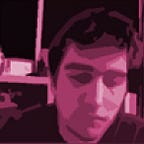TechnoSoc: Sociologists of Digital Technology
So what, exactly, is this 800+ online community of tech-focused social scientists you’ve been hearing about? We, the administrators of TechnoSoc: Sociologists of Digital Things (SDT), wanted to share with you what we do, what members get out of it, and how it works. There’s also a lot of new and exciting stuff in development. So we’ll share a bit about that, too.
Who are we?
SDT is a member-led community of sociologists who study digital phenomena in any capacity and/or study social life using digital methods. We are a diverse grassroots collective aiming to help one another with questions we have about research, readings, teaching, jobs, and more. We also organize community activities for those who are interested. We host all of this primarily on Slack.
Who is it for?
The only condition for entry is a substantive interest in the sociology of digital life (a student interested in the field, a professor studying this work, an industry researcher, etc.). This means that even if you don’t have a degree in sociology you can still join.
What’s in it for you?
We’ve done a bit of research on our own community (social scientists, am I right?) and so we have a pretty good handle on the key needs and value of SDT to members. They include:
- Feeling part of a community: activities centered on shared connection and support
- Getting help with research and teaching: literature suggestions, data sources, research design crits, reading groups, syllabi sharing, and paper feedback
- Celebrating milestones: you deserve it!
- Getting a job: academic or otherwise, including industry internships and jobs in the tech sector — like sharing job market advice and resources
What, specifically, is already cooking in SDT — and what is planned for the near future?
We have a number of different initiatives within SDT that map to those aforementioned needs. You can get the skinny on all of it on our somewhat lengthy starter guide, but here’s a descriptive overview:
When new members join the Slack we direct them to the #intros channel, an area where all new members say a hello and share a little bit about themselves. To me, this is one of the most fun parts — while many of us will respond with warm welcomes, some community members inevitably share research interests and connections start to form. Not super tech-savvy? No sweat! We’ve got a channel for no judgement Q&A to get help with technical issues. We’re working on a how-to video to use the Slack, too.
From there, participation is very “choose your own adventure.” On Mondays, we host a “standup,” or a weekly ritual to check in with everyone and share what they’re up to that week. We also have a 1:1 coffee meetup program, where those who join are randomly assigned a new member to connect with every month or so. Soon, we’ll even have a ‘who’s who’ guide to the Slack, where members can learn who’s in the community and what types of connections and opportunities others are looking for (like mentoring, paper feedback, etc.). We’ll also be hosting a series of Ask Me Anything (AMA) events, where researchers will answer questions community members ask them about their work and their careers.
There are also many opt-in sub-communities that members join, covering topics like research questions, teaching questions, student life, computational methods, data resources, research on video gaming, influencers, labor, artificial intelligence and machine learning, misinformation and polarization, scholarship by/centered on BiPOC/POC, and more. We also have sub-communities specifically for BiPOC/POC and first gen members In these groups you’ll find topic-centered discussions among like-minded researchers. If you’re looking for more formally run programs, we’ve got those too! Consider our writing accountability group, and our upcoming works-in-progress and research training workshops.
You may want help getting ready for job applications, and so you might participate in our upcoming industry research mentorship program. Or you’ll follow channels where we share job postings and offer feedback and advice on the process. Soon, we’ll have a place where hiring committees and hiring managers can peruse a list of our members who are on the market.
We also help get the word out there about your work. We have a channel for those interested in public writing about their research. We also maintain an expert database of social scientists of digital things for use among educators, journalists, and in applied contexts.
Enough already. How do I join?
Apply here! The only requirement to join SDT is a dual interest in sociology and digital technology use.
Sincerely,
Ande Reisman, Angèle Christin, Angelica Maineri, Christine Tomlinson, Christopher Persaud, Daisy Lu, Diana Enriquez, Didem Türkoğlu, Jenny Melo, John Boy, Julian Posada, Liz Marquis, Lucy Li, Madelaine Coelho, Mary Beth Hunzaker, Matt Rafalow, Michael Dickard, Michael Miner, Morgan Johnstonbaugh, Nga Than, Rida Qadri, Sam Jaroszewski, Sarah Outland, Seyi Olojo, and Susana Beltran-Grimm
